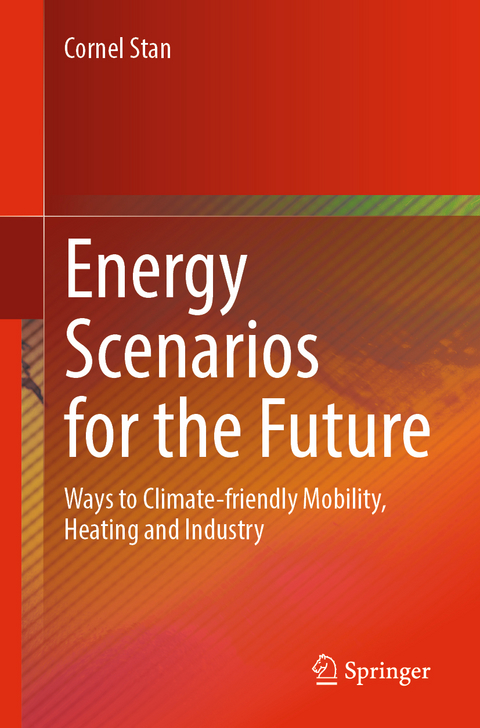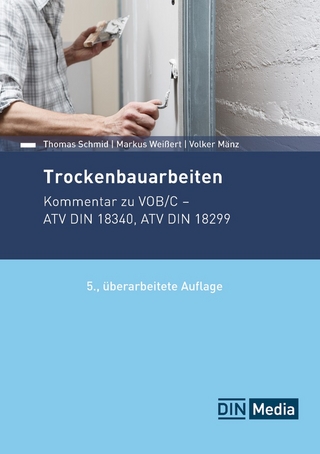
Energy Scenarios for the Future
Springer Berlin (Verlag)
978-3-662-69686-6 (ISBN)
Global economy, principles of prosperity such as home heating and mobility are increasingly and often radically sacrificed on the altar of climate salvation in politics and media. Ignoring physics, thermodynamics, and technical diversity, monopolistic, universal solutions are decreed: automobile drives exclusively electric, reverse-running, air-sucking "household refrigerators" as heaters, electricity for the large and small, highly diverse industry solely from wind turbines and solar panels, even though their contribution has remained nearly negligible for decades.
This book demystifies such dangerous climate myths based on understandable principles from physics and thermodynamics. Wind and sun are good, but by far not enough. The book describes diverse, climate-friendly fuels from plant residues, algae, used oils, and fats. It discusses "green" hydrogen as a storage or intermediate storage medium. It also describes surprising, unexpected energy scenarios that arise from the interconnection of conventional thermal machines: a jet engine combined with a steam power plant, a tank with a diesel engine as a mobile heating and power plant?
Prof. Dr.-Ing. habil. Prof. E. h. Dr. h. c. mult. Cornel Stan studied aerospace engineering at the Polytechnic University of Bucharest. He received his doctorate in 1984 in the field of internal combustion engines at the Technical University of Zwickau and completed his habilitation there in 1989 in the field of automotive engineering. From 1984 he worked for the MZ-Motorradwerk Zschopau (successor to DKW) for seven years, where he was in a leading position in the development of future drives.
In 1992 Stan was appointed professor for technical thermodynamics at the University of Applied Sciences in Zwickau, later the West Saxon University of Applied Sciences in Zwickau (Westsächsische Hochschule Zwickau), where he later also became director of the Institute for Automotive Technology. His teaching and research areas include motor vehicle drive systems, direct injection processes, simulation of thermodynamic processes, combustion processes, alternative fuels and energy management in vehicles. His specialist books on thermodynamics, alternative drives for automobiles and direct injection systems for gasoline and diesel engines are included in many of the major national libraries around the world. Stan is the author or co-author of more than 30 specialist books, over 150 scientific articles and 40 international patents, in particular on unconventional injection processes in internal combustion engines.
In 1994 he became chairman of the board and scientific director of the newly founded research and transfer center e.V. at the West Saxon University of Applied Sciences in Zwickau, (FTZ Zwickau), whose activities are currently focused on automotive engineering and electronics, electromagnetic compatibility, electrical power engineering, new technologies and materials in mechanical engineering and laser technology.
From 1994 to 1996 Stan was appointed Honorary Professor (Professore a Contratto) at the Universita degli Studi di Pisa,Italy, and in 1998 and 1999 Honorary Professor at the Universita degli Studi di Perugia, Italy. In 2002, 2003, 2004 he was Honorary Professor (1st class des Professeurs) at the Université Pierre et Marie Curie, Paris, France. In 2005/2006 he was Russell Severance Springer Professor of Mechanical Engineering (Invited Professor) at the University of California, Berkeley, USA.
Between 2000 and 2010 Stan served as a Member of the Editorial Board of the Journal of Automobile Engineering, Institution of Mechanical Engineers ImechE, UK. Since 2012 he has been editor-in-chief of the magazine Ingineria Automobilului (Automotive Engineering) of the SIAR - Romanian Association of Automotive Engineers.
Current Energy Scenarios: Decarbonization.- Battery-powered electric cars versus combustion engines with climate-friendly fuels: complete better than delete.- Heat pumps: Heat transport against nature requires work.- Photovoltaics for electrical energy and climate-friendly fuels.- Wind turbines for electricity and mobility.- Hydropower and hydroelectric plants.- Nuclear energy for heat and electrical energy: Climate-friendly, sufficient, adequate, but questionable.- Jet engine flow instead of nuclear reaction: energy for heat and electricity.- Heat and electrical energy from waste and biomass to reduce greenhouse gas emissions.- Alternative fuels for environmentally friendly heating and working machines.
| Erscheinungsdatum | 03.08.2024 |
|---|---|
| Zusatzinfo | XIV, 217 p. 42 illus., 40 illus. in color. |
| Verlagsort | Berlin |
| Sprache | englisch |
| Maße | 155 x 235 mm |
| Themenwelt | Technik ► Bauwesen |
| Technik ► Elektrotechnik / Energietechnik | |
| Technik ► Maschinenbau | |
| Schlagworte | Alternative energy sources • decarbonization • heat pump • hydrogen technologies • Mobility • Primary Energy • Thermal and electrical machines |
| ISBN-10 | 3-662-69686-X / 366269686X |
| ISBN-13 | 978-3-662-69686-6 / 9783662696866 |
| Zustand | Neuware |
| Haben Sie eine Frage zum Produkt? |
aus dem Bereich


